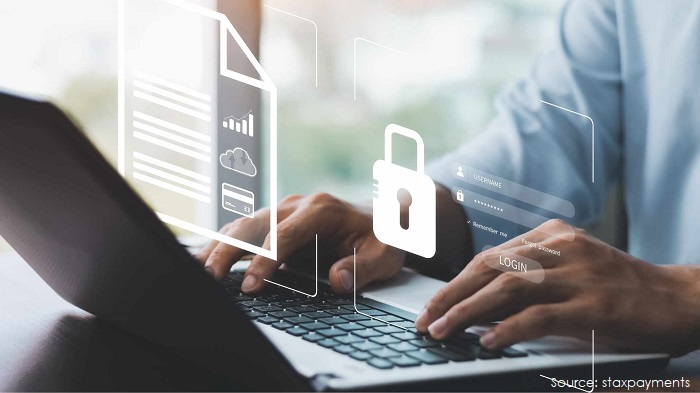Finance
Why Going Paperless is Key to Reducing Fraud in B2B Transactions

- Paperless B2B payments enhance security and reduce fraud through encryption, multi-factor authentication, and real-time monitoring.
- The shift to digital transactions improves efficiency, lowers costs, and ensures regulatory compliance, positioning businesses for future growth.
In the ever-evolving landscape of business finance, the shift towards paperless B2B (business-to-business) payments is making a significant impact, particularly in the fight against fraud. Companies are increasingly moving away from transaction methods that rely on paper, they’re finding that digital options offer greater security and efficacy. Let’s look at the ways that going paperless can transform the way B2B payment transactions are handled and how it reduces fraudulent transactions.
The Rise of Paperless Payments
Payments that are paperless, including electronic funds transfer (EFT) as well as automatic clearing houses (ACH) transactions, as well as electronic invoicing have become essential to modern-day business operations. Transitioning between paper checks and manual processing to the digital method is prompted by the requirement to speed up, secure efficient and secure transactions. Many businesses are increasingly embracing paperless options for streamlined operations as well as enhancing financial control.
Enhanced Security Features
One of the biggest benefits of cashless transactions is the increased security that they provide. Paper checks can be vulnerable to different types of fraud such as fraudulent checks as well as alteration and forgery. However, modern digital systems for payment have sophisticated security measures that greatly minimize the risk.
In particular, electronic payment systems generally use encryption to secure transactions, making it impossible for criminals to snoop and modify the information. Furthermore, electronic payment services generally come with the feature of multi-factor authentication (MFA) that provides an extra layer of protection with multiple types of authentication before a transaction can be accepted.
Real-Time Monitoring and Detection
Payment systems that are paperless also supply companies with the ability to monitor their transactions in real time. This allows immediate identification of any suspicious or suspicious behavior. Modern algorithms and machine learning methods are employed to analyze the patterns of transactions and highlight any suspicious patterns that may signal fraudulent conduct.
With real-time insight into payments made to financial institutions, paperless solutions help businesses react quickly to threats that could be posed. This proactive method aids in reducing risks and stopping fraud before it can create significant damage.
Cost Efficiency and Operational Benefits
Beyond security, electronic payments offer a host of benefits in operation that contribute further to decrease in fraud. Paper-based transactions require manual processing that is time-consuming and is also susceptible to human errors. Incorrect data entry or processing may create vulnerabilities that criminals can be able to exploit.
However, electronic payment systems can automate certain processes and reduce the risk of making mistakes, and improving precision. Automation does not just speed up the process however it also reduces the administrative expenses related to manually processed transactions.
Regulatory Compliance
Another benefit of using paperless payment methods is that they are in line with the legal requirements. Since regulations governing the financial transaction become more strict companies must be sure to comply so that they do not face penalties. Paperless systems typically come with built-in security features to ensure that businesses comply with industry standards and regulations, which further reduces the possibility of fraud.
Conclusion
The move towards paperless B2B transactions is not an fad; it’s an effective move to improve safety and effectiveness when it comes to the business transaction. Through the use of digital tools businesses can drastically lower their chances of becoming a victim of fraud, while also benefiting from quicker and more precise financial procedures.
When businesses continue to use payments that are paperless, they can not only improve their security, but prepare themselves for growth in a rapidly changing global environment. Making the switch to paperless payment isn’t just a technological change, but is a crucial measure to protect your business’ transactions from fraudulent activity.
In embracing paperless options businesses can experience peace of mind knowing that the transactions they make with their money are safe as well as efficient and comply with current laws.

















































